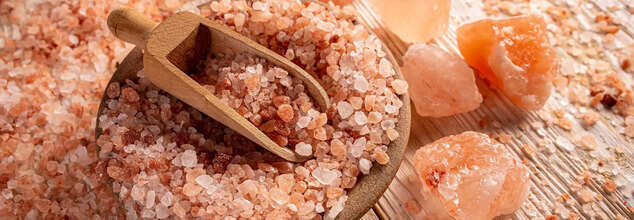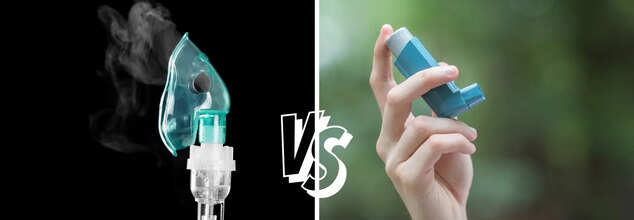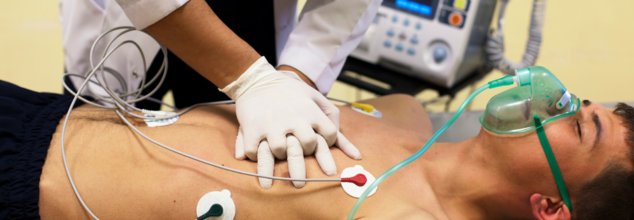- Health Conditions A-Z
- Health & Wellness
- Nutrition
- Fitness
- Health News
- Ayurveda
- Videos
- Medicine A-Z
- Parenting
- Web Stories

Credit: Canva
Pink Salt Can Put You In Coma-Here's How?
Eighty-year-old Rajesh Kumar had always been an active man, starting his mornings with a brisk walk in the park. But one day, he suddenly felt dizzy and weak, forcing his family to rush him to a private hospital. Tests revealed a severe drop in his sodium levels—just 101 millimoles per liter, far below the healthy range of 135 to 145. Fortunately, with timely medical care, his condition was stabilized.
Rajesh’s case is not unique. Doctors are increasingly encountering seniors facing similar health scares due to sodium deficiency, also known as hyponatremia. Research suggests that nearly 70% of individuals over sixty may be affected, yet awareness remains low. With the youth shifting to low-sodium alternatives like pink salt or Himalayan salt, the risk of low sodium is high.
But Isn't Sodium Bad?
Sodium is often associated with high blood pressure and other chronic health issues. However, it is a crucial mineral and electrolyte that plays a key role in fluid retention, muscle function, and nerve signaling. The body requires only a small amount of sodium to function optimally, and excessive consumption can lead to significant health risks. On the other hand, low sodium in the blood can lead to Hyponatremia.
How To Detect Hyponatremia?
This condition can sneak up in subtle ways—causing nausea, headaches, confusion, fatigue, irritability, and even severe complications like seizures or coma. Yet, many older adults and their caregivers are unaware of the risks. Experts stress that recognizing the symptoms early can make a huge difference in preventing serious health issues.When sodium levels dip too low, the body starts retaining excess water, leading to swelling that particularly impacts the brain. In extreme cases, patients can slip into a coma. In just the past two months, he has treated ten patients with confusion caused by sodium deficiency, three of whom had seizures, while two struggled with speech repetition.
Sodium does more than just add flavor to food—it regulates blood pressure, balances body fluids, and keeps muscles and nerves functioning properly. A deficiency can set off a chain reaction, increasing the risk of kidney failure, heart failure, and other complications affecting vital organs.
With more seniors at risk, doctors are urging families to pay closer attention to diet and hydration. Simple steps like staying hydrated with electrolyte-rich fluids and ensuring a balanced intake of sodium can go a long way in preventing health scares like Rajesh's.
As awareness grows, so does the hope that fewer seniors will have to experience the dangers of sodium deficiency. By recognizing the signs early and making small lifestyle adjustments, families can help their loved ones maintain their health and independence well into old age.

Inhalers vs Nebulisers: Why Doctors Are Making The Switch
Remember how a few years ago, a nagging cough or chest congestion in your child almost always meant a pediatrician prescribing nebulisation? That was the norm back then. But not anymore. These days, you will notice more doctors recommending inhalers instead. What changed? No, it’s not that nebulisers are suddenly seen as harmful. The shift is more practical than that.
Dr Amit Dhamija, Pulmonologist at Sir Ganga Ram Hospital explains, “Nebulisers usually deliver a higher dose of medication, while inhalers allow for better dose control. It’s clinically proven that inhalers help in better delivery of medicines to lungs, if the technique is right. Earlier, inhalers weren’t widely used because children and elderly patients struggled with the technique - they couldn’t always coordinate breathing correctly. So doctors opted for nebulisers instead.” Now spacers are the game-changers.
Dr Viswateja Chitturi, Lead Consultant Pediatric Intensivist at Apollo Hospitals, Vizag, adds, “Earlier, doctors were concerned that patients wouldn’t use inhalers properly, so they relied on nebulisers to ensure the right dose reached the lungs. Now, with the use of spacers, even kids can use inhalers effectively. That’s why inhalers have become more common.”
There’s also a common myth floating around — that inhalers are addictive or make you dependent. This isn’t true. Inhalers are clinically proven to prevent asthma flare-ups and manage symptoms safely. And for those wary of allopathy, Dr Chitturi says that the fact is that alternative medicines often contain more steroids than your prescribed inhaler.
Apart from convenience, inhalers are far more portable and time-efficient than setting up a nebuliser every time.
But here’s the catch: don’t self-medicate. Dr Amit warns, “Every medicine, whether through inhalers or nebulisers, has side effects. These devices should never be used without a doctor’s supervision. I often meet patients who have already tried both and tell me they didn’t work. What they don’t realise is incorrect usage or wrong dosage can be risky. And sometimes, neither may even be needed. A proper diagnosis is key.”
The takeaway is that inhalers haven’t replaced nebulisers because one is better than the other. They both have their place. The choice depends on the patient, the condition, and how the medicine needs to be delivered. What’s important is to use them under medical guidance and not because you saw someone else do it or read about it online.
World Asthma Day - Make Inhaled Treatments Accessible for ALL
This year, the day will be observed on 6th May. It is a fight for combatting non-communicable disease in children and adults. This year, the theme of World Asthma Day is "Make Inhaled Treatments Accessible for ALL". The focus is to make sure that anyone with asthma has access to inhaled medications to prevent flare ups and manage asthma attack in a better manner.

(Credit-Canva)
Research Reveals The Surprising Number Of Lifestyle Choices That Put Our Heart Health At Risk
Living a healthy lifestyle is crucial for your heart health. We all have heard this from our doctors, peers, as well as multiple studies across the internet. The number of things that could have a negative impact on your heart keeps seemingly increasing, leaving many of us wondering how many more things we should be aware of. New research has painted a clear picture for us and gives the exact number of everyday risks that could slash the risk of heart attack by 63%. In the study published in the Canadian Journal of Cardiology, researchers were surprised to find that removing 56 unfavorable profiles, could lower the chances of declining heart health.
This shows that what we do every day has a really big impact on our heart health and our chances of this happening.
The researchers compared the people who had a sudden cardiac arrest with those who stayed healthy. They looked at 125 different things that people can change, like what they eat, how much they exercise, if they smoke or drink, how they feel emotionally, and even things like their job and money situation. The place you live at can also be a factor as the study noted that things like air pollution, traffic proximity and intensity, the percentage of natural environment can also affect your heart health. This helped them figure out which of these things were most strongly linked to having a sudden cardiac arrest.
Preventable Variables To Look Out For
The study found 56 things in our daily lives, our surroundings, and our health that can lead to sudden cardiac arrest. If we pay attention to these things and make them better, like eating healthier or being more active, we might be able to stop up to 63% of these heart problems from happening. It's about looking at all the pieces of our lives.
The researchers expressed their astonishment over how many cases we could possibly prevent. He said that if people who have unhealthy habits or situations made improvements, we could see a big drop, somewhere between 40% and 63%, in the number of sudden cardiac arrests. This shows that making positive changes can have a much bigger effect than we might think.
How Did The Researchers Find This?
To learn more about what causes these heart problems, the researchers looked at a lot of information from a long-term health study in the UK. This study followed over 500,000 people for many years. During that time, more than 3,000 of them had a sudden cardiac arrest. By looking at all this data, the researchers could start to see patterns and find the things that might be increasing the risk.
The research draws attention towards the increasing numbers of people suffering with heart diseases in the world. According to the American Heart Association in just one year 436,000 American died due to cardiac arrests. Cardiovascular diseases are the leading cause of death globally, taking 17.9 million lives each year. Hence, changing a few necessary things to protect your heart could save your life in the long run.

(Credit-Canva)
Undiagnosed Depression In Fathers Affects Children's Mental Health
Fathers are always portrayed as the strong ones who keep the family together. Many are not given the space to express their emotions in a healthy way. The idea that dads need to be strong and stoic affects many men in different ways. The surprising state of men’s mental health is evident in different statistics. According to World Health Organization (WHO), men commit suicide twice the rate more than women. About 80% of suicides reported in the US happen to be men. The Centers for Disease Control and Prevention (CDC) explains that men are four times more likely to die by suicide.
Not only is the lack of mental health care affecting men all around the world, but new study shows, their depression may have an effect on their children’s well-being. In a recent report done by the American Journal of Preventive Medicine, researchers found that children, whose fathers have undiagnosed depression, are more likely to have behavioral issues.
What Kinds Of Behaviors Did These Kids Exhibit?
The study found that young kids whose dads were found to be depressed, undiagnosed, were more likely to be restless and act out as they got older. By the time they were nine, they showed more anger and defiance. They also had a harder time working with others and didn't feel as good about themselves. This suggests that a father's early mental health can shape a child's behavior for many years.
Experts point out that we usually focus on mothers' mental health, especially after having a baby. However, this study reminds us of that fathers' mental health is just as important. We need to think about both parents' well-being because they both play a big role in raising their children. Ignoring one parent's struggles isn't good for the family as a whole.
How Common Is Parental Depression?
It might surprise you to learn that many fathers go through periods of feeling depressed when their kids are young. In fact, around 8 to 13 out of every 100 fathers in the US experience this. If the mother is also struggling with depression after giving birth, the chances of the father feeling depressed can shoot up, affecting as many as half of them.
To understand how fathers' mental health affects kids, researchers looked at information from a long-term study. They followed over 1,400 children born in big cities across the US. When the kids were five, they asked the fathers about any signs of depression. Then, when the kids were nine, their teachers helped assess how they were behaving in school and with others. This helped the researchers see connections over time.
Parent’s Mental Health Affect The Child’s Behavior
The results of the study clearly showed that there was a connection between fathers who were depressed and children who had more behavioral problems. The researchers found a pattern suggesting that when fathers struggle with their mental health, it can have a direct impact on how their children act and feel as they grow older.
When a father is depressed, it can make it harder for him to be the kind of parent he wants to be. For example, he might find it difficult to give his children the emotional support they need, like listening to their problems or offering comfort. His own sadness can also create tension and arguments at home, making the environment stressful for everyone in the family, including the kids.
When parents show their children that it's okay to ask for help when they're struggling, it teaches a valuable lesson. It shows kids that everyone faces challenges and that reaching out is a sign of strength, not weakness. This understanding can stay with children throughout their lives, making them more likely to seek support when they need it too.
© 2024 Bennett, Coleman & Company Limited

